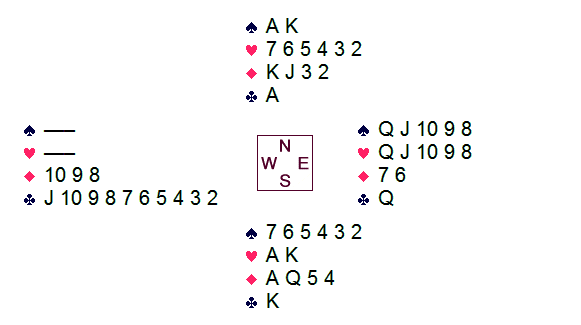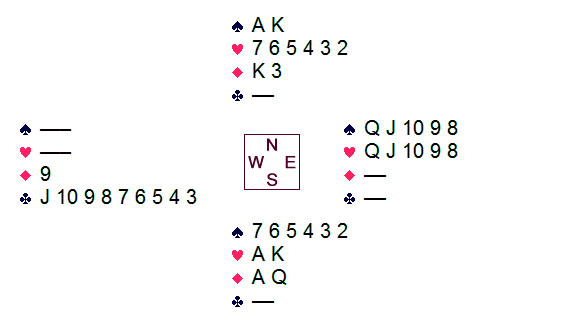

 |
 |
Transporter

South to make 4NT
Opening lead: ♦10
There are insufficient entries in either hand to give up three tricks in one of the majors, then cash the long card. A successful line must involve some sort of squeeze.
So try it. Win the diamond, cash the club, then two more diamonds.
East must make a discard, but wait — he can see which hand will win the
fourth diamond, and can discard from the major in the opposite hand. No good.
East must be compelled to commit himself before knowing where the fourth diamond
will be taken.
That calls for an Entry-Shifting Squeeze in diamonds; but the spot cards are
wrongly placed. If the three and four were exchanged, the queen and jack could
be played off; then, holding ♦K4 opposite
♦A3, the king could be led, winning if a spade were discarded,
or overtaken if east shortened his hearts. As it is, there is no way to arrange
to win four diamond tricks in an entry-shifting sequence.
But wait! If that squeeze were operable, would not eleven tricks be available? That's your clue. The answer is to duck the opening diamond lead in both hands! The next two tricks are taken by the club ace and diamond jack, leaving:

The diamond three is led. If east discards a spade, south plays the queen; if a heart, then the ace wins. Now there are entries enough to establish and cash two long cards in the unguarded major.
Note: if west elects to lead a diamond at trick two, then two other workable matrices are available: ♦KJ opposite either ♦A5 or ♦Q5. In either case, the king is led, and south plays accordingly.
Note also that the opening lead of a club would have defeated the contract.